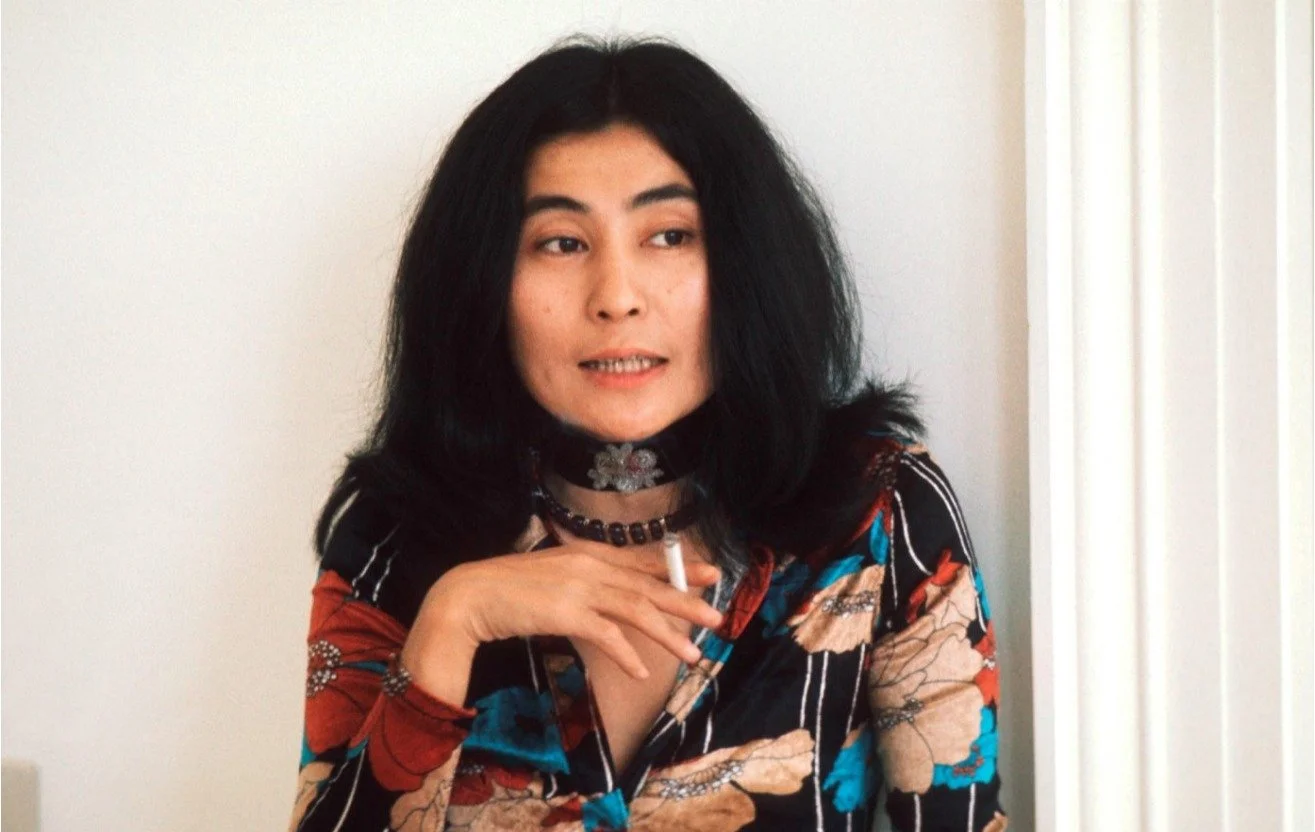NME : Hear Yoko Ono’s ‘Listen, The Snow Is Falling’, which is finally available to stream
By Ali Shutler
The 1971 track was the B-side to John Lennon’s ‘Happy Xmas (War Is Over)’
Yoko Ono, at home, during John Lennon interview, Tittenhurst Park, near Ascot, Berkshire, July 1971. CREDIT. Michael Putland/Getty Images)
Yoko Ono’s 1971 track ‘Listen, The Snow Is Falling’ has today been made available on all streaming platforms for the first time.
The track was originally released as the B-side to John Lennon’s iconic ‘Happy Xmas (War Is Over)’ and features Lennon on guitar.
Speaking about the track in 1993, Ono said: “The first pop song — if you can say pop song — I ever wrote was ‘Listen, the Snow Is Falling.’ I did that before (Lennon and I) got together. Then, when we got together, I made it into a real pop song.”
‘Listen, The Snow Is Falling’ is out today (December 16) on all streaming platforms.
Last month, Ono shared an article titled ‘Beatles Fans Think Get Back Dispels The Idea That Yoko Ono Broke The Band Up’.
Peter Jackson’s Beatles documentary charts the making of the band’s penultimate studio album ‘Let It Be’, and shows their final concert on London’s Savile Row rooftop in its entirety.
The archive footage in Jackson’s documentary shows Ono apart from The Beatles during the recording sessions for ‘Let It Be’ and busying herself with her own tasks, contrary to reports that she was involved while they were making the album.
Ono has been blamed for breaking up of The Beatles since the group called it quits in 1969.
Get Back director Peter Jackson also believes Yoko Ono wasn’t to blame. In an interview with 60 Minutes he said: “I have no issues with Yoko. I can understand from George and Paul and Ringo’s point of view it’s a little strange. But the thing with Yoko is that she doesn’t impose herself (during the sessions for’Let It Be’). She’s writing letters, she’s reading letters, she’s doing sewing, she’s doing painting, sometimes some artwork off to the side.”
“She never has opinions about the stuff they’re doing. She never says, ‘Oh, I think the previous take was better than that one.’ She’s a very benign presence and she doesn’t interfere in the slightest.”
Article published in www.nme.com

